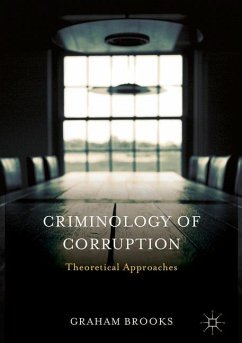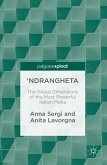This book uniquely applies theoretical approaches from criminology and sociology to the problem of corruption. Theoretical thoughts have future consequences on how we treat, punish and deter and corruption policy illustrates that theoretical approaches affect what laws and techniques are implemented. Theoretical approaches, however, are not developed in a social and political vacuum; they are a part of the changing social world and understanding why corruption occurs is a preface to developing strategies to control and prevent it.
Criminology of Corruption analyses corruption on an international scale and uses numerous case studies to help explain why individuals, organisations and states are corrupt. The book charts the development of the most relevant theoretical approaches and uses them to help explain acts of corruption and prevention. It will be of great interest to scholars researching these issues across criminology, sociology and other disciplines.
Criminology of Corruption analyses corruption on an international scale and uses numerous case studies to help explain why individuals, organisations and states are corrupt. The book charts the development of the most relevant theoretical approaches and uses them to help explain acts of corruption and prevention. It will be of great interest to scholars researching these issues across criminology, sociology and other disciplines.








